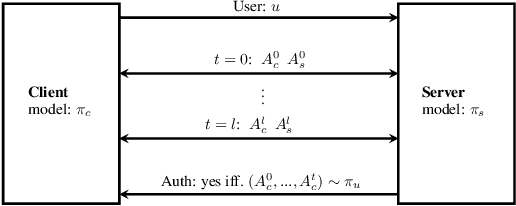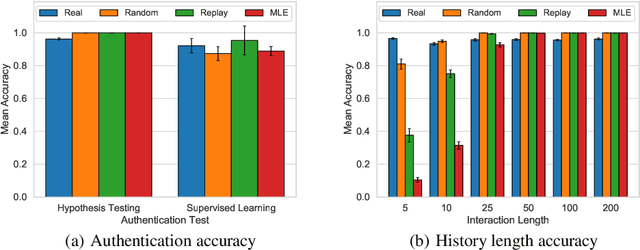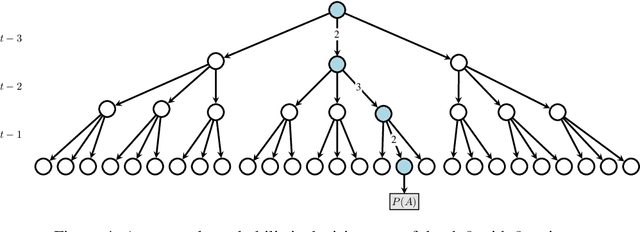Quantum-Secure Authentication via Abstract Multi-Agent Interaction
Paper and Code
Jul 18, 2020



Current methods for authentication based on public-key cryptography are vulnerable to quantum computing. We propose a novel approach to authentication in which communicating parties are viewed as autonomous agents which interact repeatedly using their private decision models. The security of this approach rests upon the difficulty of learning the model parameters of interacting agents, a problem which we conjecture is also hard for quantum computing. We develop methods which enable a server agent to classify a client agent as either legitimate or adversarial based on their past interactions. Moreover, we use reinforcement learning techniques to train server policies which effectively probe the client's decisions to achieve more sample-efficient authentication, while making modelling attacks as difficult as possible via entropy-maximization principles. We empirically validate our methods for authenticating legitimate users while detecting different types of adversarial attacks.
 Add to Chrome
Add to Chrome Add to Firefox
Add to Firefox Add to Edge
Add to Edge